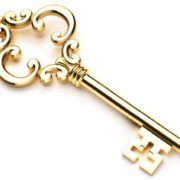According to the American Association for Marriage and Family Therapy (AAMFT), “After receiving treatment, almost 90% of clients report an improvement in their emotional health, and nearly two-thirds report an improvement in their overall physical health. Over three-fourths of those receiving marital/couples or family therapy report an improvement in the couple relationship.”
If therapy works so well, then why then, does good couples therapy sometimes fail? What are the reasons?

Are you ready?
Here’s what I see when it fails. I do not mean to discourage anyone from seeking help, but I urge you to get clear on where you may land in any of the scenarios below.
Reasons Good Couples Therapy May Fail
1.One partner is not truly interested on change, or clearly believes it is the other person is who must behave differently.
What actually works: when you seek to understand how your behavior is impacting your relationship.
2.The couple enters therapy as simply a last ditch effort way past the “expiration date” of the relationship.
Couples, on average, have been in trouble for 6 years prior to seeking help.
3.An affair, or serial straying, has amplified the diminished interest of one partner in any attempting meaningful allegiance to the relationship.
If an active affair is in place, it needs to end before any genuine repair work can even begin.
4.The values of each partner have diverged over time. Most egregious can be when one partner wants children, and the other does not, especially when the desire was the same at the beginning of the relationship. Other factors can be substance abuse (or other addictions), financial struggles, or serious illness in one partner, or their children.
5.Serious past trauma has undermined the relationship in ways the couple has not, or cannot, recognize. This is often a critical reason that relationships fail. As a result, harmful repeating patterns of communication have collected over time causing irreparable damage to trust. The trained therapist can often help people connect the dots in an eye-opening way. Unresolved, these issues create longstanding patterns of dysfunction that can and will destroy your bond.
6.The therapist has no serious training in couples therapy. Or is committed to only one model that feels too cookie-cutter to the client, disrupting the critical alliance between client and therapist. Sometimes combining approaches that speak to the couples’ need in the moment is really helpful. (There are many types of couples therapy: Emotionally Focused Therapy, Gottman, PACT by Stan Tatkin, IMAGO, Cognitive Behavioral Therapy, to name a few.)
Couples often come into therapy with the notion that the job of the therapist is to “fix them” or worse, to “fix” the other partner.
7.Not enough progress has been felt by the couple fast enough. This disappointment is often created by the couple, or one of the partners, coming into therapy with the notion that the job of the therapist is to “fix them” or worse, to “fix” the other partner. See item #1. Good couples therapy will help you feel real change in an average of about 12 sessions if both partners are committed to the process.
In summary, the goal of good couples counseling, speaking for myself, is to help the couple reach a path forward. That path may be an improved relationship, or reaching the decision that the relationship would be better off dissolved. Either course is legitimate.
On Reasons, Timing is Everything!
If you see yourself in these descriptions, and are willing to commit to changing your own behavior, you can definitely succeed on creating a healthier, more satisfying relationship. I can help with that. Contact me here when you’re ready. Timing is everything. And don’t forget, you can personally benefit from one-on-one counseling when you are struggling in your relationship to gain insight as to why you can’t resolve it, and whether you should stay or go.











